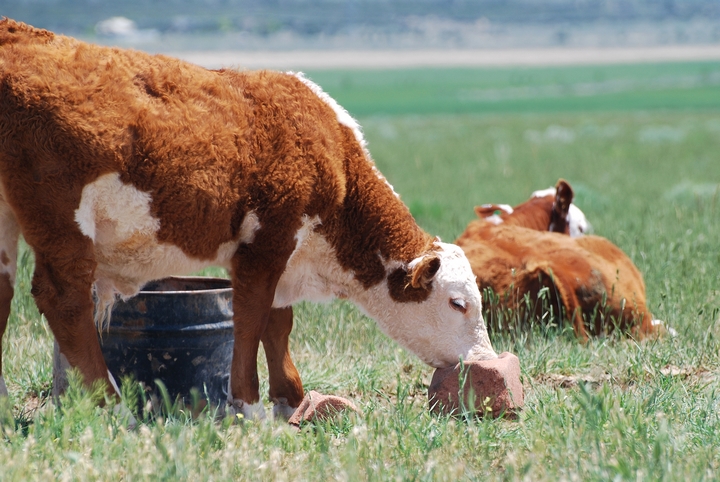Cattle are generally easy to care for as long as you see their basic requirements. Good quality pasture, plenty of clean water, nutritious food, and available shelter will go a long way in keeping your cows healthy and thriving.
Before you purchase your first herd of cattle, you must understand their needs and how to care for them. Many factors contribute to cattle’s health, from food to living space.
Let’s cover the basics of what you must do to keep your new herd healthy and happy.
1. Nutrition
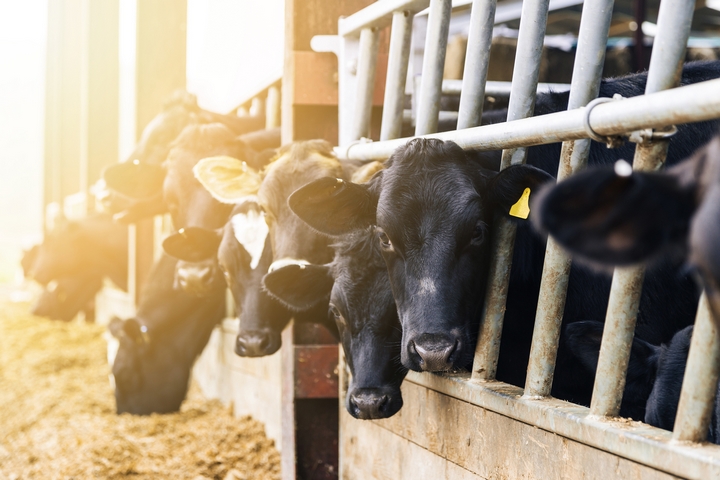
A well-planned diet for your cattle is one of the most important aspects of keeping them healthy. Pastured cattle eat mostly grass, but many farmers supplement with grain and hay. You also need to have supplemental food available in the event of extreme weather or any reason your herd may not be able to be in its regular pasture for any time.
You should always use a clean feed container for grain and a hay rack to feed hay. Wet food can go mouldy, which in turn can make your animals sick or even kill them. Be sure to monitor your cattle’s food intake. A decreased appetite can be one of the first signs of illness.
2. Water
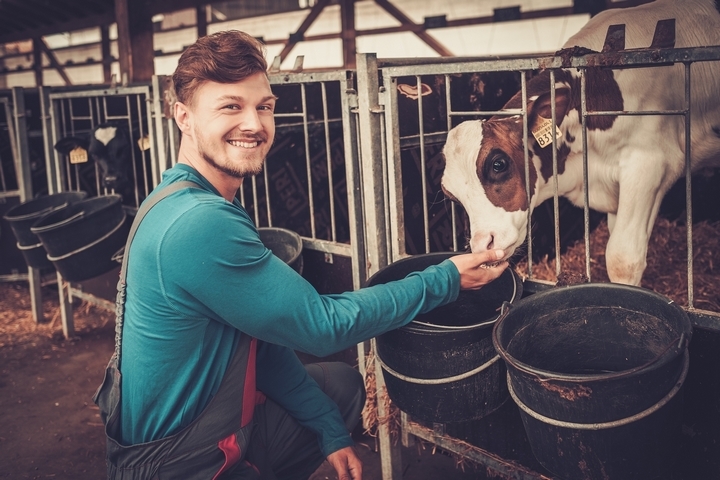
Access to clean water is essential for your herd. Depending on your setup and amenities, the water source might be a stream that runs through the pasture, or you may have to fill up water tanks if no natural water source exists. You must keep a close eye on the condition of the water. If it becomes contaminated, it must be replaced immediately.
Unclean water can cause disease and severe illness, and dehydrated cows are at higher risk of colic and impaction. Under normal circumstances, cattle need 1-2 gallons of fresh water for every 100 pounds of body weight. And in hot weather, this amount can double. Keep this in mind when choosing cattle waterers for your pastures.
3. Salt
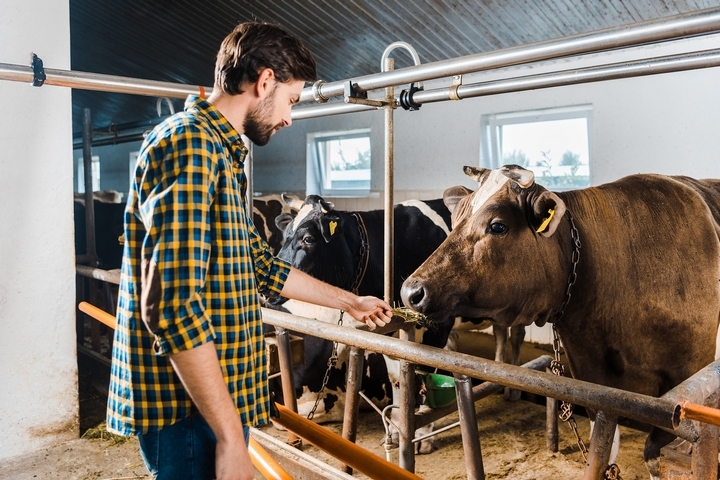
All animals need a daily intake of salt to survive. Carnivores can usually get adequate salt from their diets, but herbivores like cows need to seek it out while they graze. You can ensure your cattle get enough salt by providing it as a lick.
It’s a good idea to place one in each pasture and one near where they go at night, whether a paddock or a barn. Salt licks are purchased through your local feed company.
4. Proper Shelter
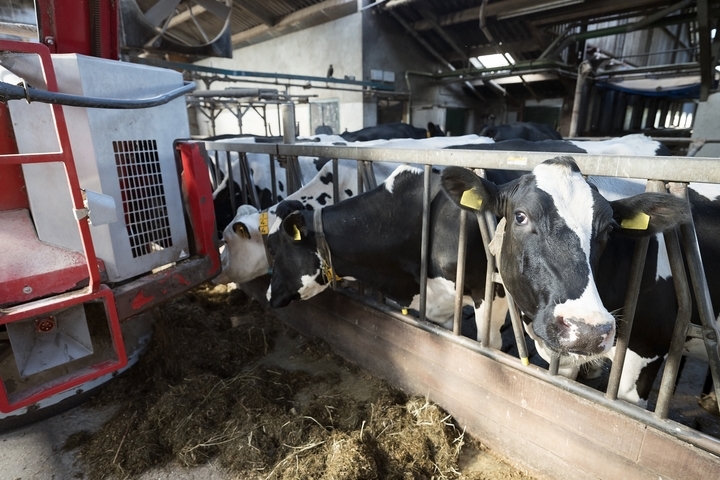
Even if your herd spends most of its time on pasture, proper shelter is necessary. Extreme weather will stress out your cattle, which is not good for them. Providing adequate protection out in the pasture for grazing cattle during cold weather is critical to the well-being of your animals. It can also reduce feed costs since cold cattle eat more to compensate for increased energy requirements.
There are many different ways you can safely provide shelter to your herd. Three-sided sheds are simple to erect and can be placed throughout your pastures. You can also take advantage of the natural topography of your land. If a field has any stands of trees, hills, or gullies, these can also be incorporated into your plans.
5. Stress-Free Environment
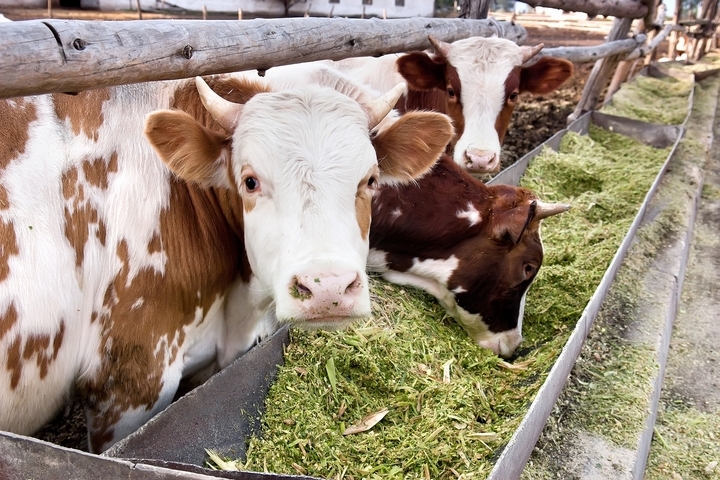
Stress can make any animal more susceptible to illness; cows are no exception. Make sure that you always take care to interact with your cattle calmly. Treating your animals gently is of the utmost importance.
Whips and electric cattle prods are never ideal. They will scare and stress your cows and usually result in the animals acting wildly, which is unsafe for you or your animals. If you are planning to hire help on your farm, make sure the people you bring are experienced with cattle and know how to handle and care for them properly.
6. Keep an Eye on Your Herd
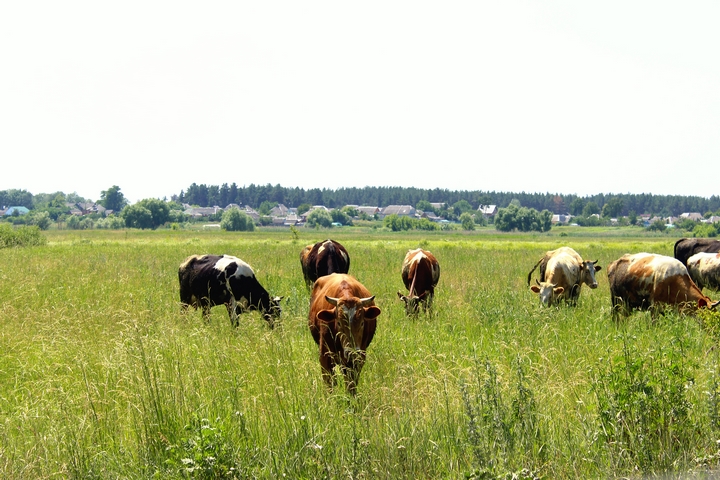
It’s crucial to regularly check on the health and well-being of your cattle. You should do routine physical examinations rather than waiting for an animal to show signs of illness or injury. Take the time to observe your cows daily as well.
When you observe your herd while they are healthy, you will have a better chance of recognizing the signs of an animal in distress.
7. Regular Vet Checks
Having a veterinarian come in regularly is a vital part of maintaining the overall health of your herd. No matter how much you do on your own, there’s always a chance that the vet might see something missed.
Work with your vet to create a parasite control and vaccination schedule for your herd and follow it. You can administer some vaccines independently, but others will require your vet.

